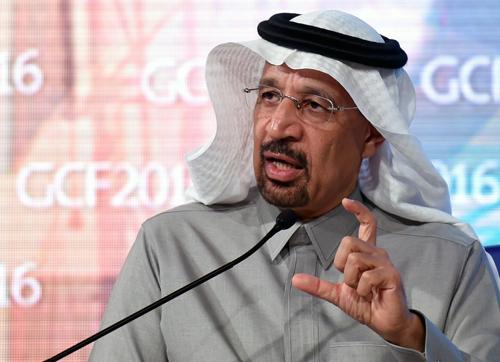You are here
New Saudi leaders to press economic diversification
By AFP - Jan 27,2015 - Last updated at Jan 27,2015

RIYADH — Saudi Arabia's new leadership will push forward efforts to diversify the growing but oil-dependent economy, while easing procedures for investors, senior officials said on Monday.
"The smooth transition of power to King Salman is a testament of the stability and the commitment that our leadership has," Abdul Latif Al Othman, governor of the Saudi Arabian General Investment Authority (SAGIA), told a conference.
Salman acceded to the throne of the world's leading oil exporter on Friday after his half-brother King Abdullah died aged about 90.
"King Salman has been a strong supporter of promoting the kingdom as an investment destination," Othman told the Global Competitiveness Forum.
The annual event, organised by SAGIA, brings together high-ranking Saudi officials with world business leaders.
Among those attending is Eric Schmidt, executive chairman of tech giant Google.
Oil makes up about 90 per cent of Saudi government revenues but Othman said the kingdom aims to expand the health, transport and mining sectors, along with information and communications technology.
"Already we've identified healthcare and transportation investments valued at $140 billion in the coming five years," Othman indicated.
There was also a plan to "transform" the financial services, tourism and real estate sectors while focusing on education and "innovation", he said. "Now we have one of the most tech-savvy populations in the world."
'Fast-track'
Critics have complained of the administrative obstacles to doing business in Saudi Arabia but Civil Service Minister Abdul Rahman Al Barrak told the gathering that "fighting red tape... is a priority".
Othman noted that after detailed study the government has been trying to address investors' concerns.
"We've introduced a fast-track process that will enable investors to obtain licences within five days," he said.
During King Abdullah's "transformative" rule, Saudi Arabia joined the Group of 20 of major world economies as well as the World Trade Organisation.
"Foreign direct investment grew at an average rate of 10 per cent [and] increased by fivefold to reach $220 billion," Othman pointed out. "Productivity growth in the private sector has averaged an impressive 8.4 per cent annually since 2005."
A 50 per cent fall in world oil prices since last June has left Saudi Arabia projecting its first budget deficit since 2011, emphasising the need to diversify.
"We expect that the government will continue spending in the near future because we have great surpluses," despite lower projected revenues, the civil service minister said.
The kingdom's reserves are estimated at $750 billion.
The chairman of the Capital Market Authority told the forum that Saudi Arabia is on track to open its stock market to foreign investors by the end of June.
A final date will be announced after relevant regulations are issued but it "will be before the end of the first half of 2015", said Mohammed Al Sheikh, chairman of the Capital Market Authority.
Penny-stock players, however, will not be welcome on the expanded Tadawul All-Shares Index, the largest Arab bourse.
"We really want to attract large, sophisticated, experienced institutional investors and the requirements actually show that," Sheikh told the forum.
Britain's Peter Mandelson, now Lord Mandelson, a former European trade commissioner, told the forum that Saudi Arabia's accomplishments are "impressive, but there is still a long way to go".
Related Articles
RIYADH — By abandoning the tight rein it held for decades on the oil market, Saudi Arabia launched a battle for control that sent crude pric
RIYADH — Arab leaders must treat the region's 100 million young people as an asset, not a liability, the UN's youth envoy said in Saudi Arab
RIYADH — Saudi Arabia's main airline will next month start weekly international flights from the kingdom's planned futuristic megacity known


















